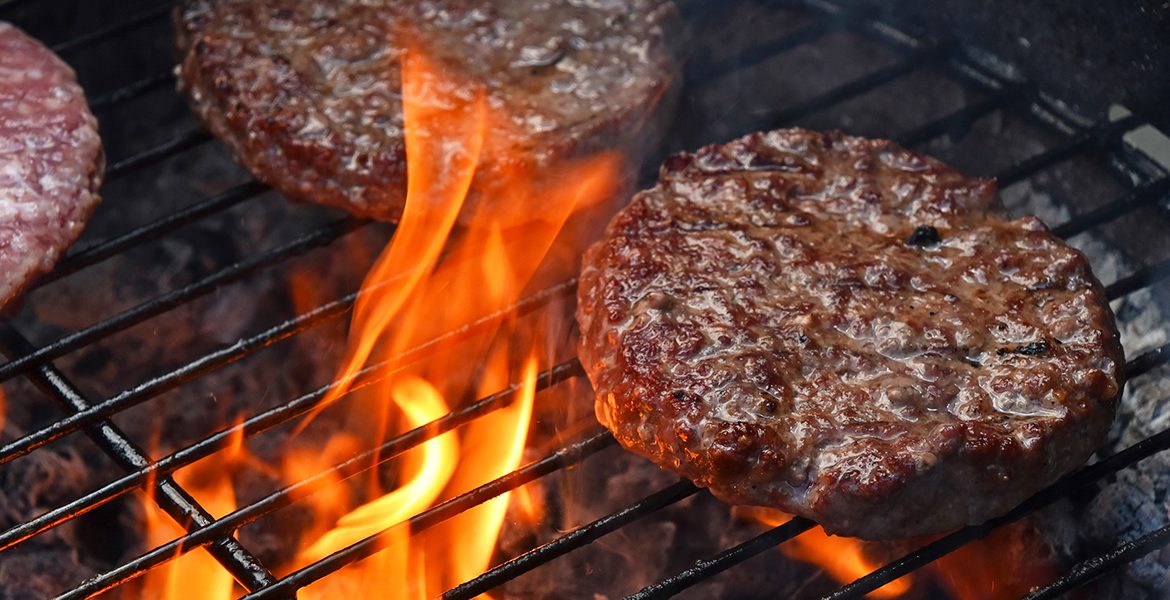
Remember food safety when firing up the grill this summer
Wednesday, June 20, 2018
Warmer weather is here, and many Oklahomans are firing up their grills. Summer is typically a time of creating fun-filled memories and delicious meals; however, if the meal is not prepared properly, it could be a source of foodborne disease.
According to the U.S. Department of Agriculture’s Food Safety & Inspection Service, foodborne illness peaks during the summer months, as harmful bacteria tend to grow faster in warmer, more humid weather.
Food safety isn’t just for the food manufacturing plants, it is important in the home as well, said Peter Muriana, food microbiologist for Oklahoma State University’s Robert M. Kerr Food & Agricultural Products Center.
“Everything we eat has some degree of foodborne illness risk associated with it,” Muriana said. “Generally, those people who practice good food-handling practices are less likely to acquire foodborne illness, but they are still not completely invulnerable to it. When consumers practice risky food-consumption practices and get away with it, there is often a sense that the caution was unwarranted, and they may continue those practices until someone gets sick.”
FAPC wants Oklahomans to have a safe and fun summer and suggests the following food safety tips when preparing favorite, summertime meals.
Preparing foods for the grill
- Completely thaw meat and poultry in the refrigerator before grilling, so it cooks evenly.
- Never thaw raw meats on a countertop or in a sink. Thawing at room temperature increases the risk of bacteria growth at the surface of the meat, even though the interior may still be chilled.
- Marinate foods in the refrigerator, not on the counter, where bacteria can multiply.
- Discard leftover marinade. Do not use it on cooked foods as a dressing or dipping sauce because it could contain bacteria.
- Do not use the same utensils, platters and basting brushes for both raw and cooked meat. Juices from the raw meat may contaminate cooked food.
- Wash your hands thoroughly before and after preparing any food product.
Cooking food on the grill
- Use a food thermometer to make certain the meat is thoroughly cooked.
- Cook meat to proper temperatures by using the following internal temperature guide:
- Beef, pork, lamb and veal: 145 degrees Fahrenheit (Allow 3 minutes to rest before consuming).
- Ground meats: 160 degrees Fahrenheit.
- Chicken: 165degrees Fahrenheit.
Picnic cookouts and barbecues
- Keep foods, such as cooked hamburgers/hotdogs, condiments, cheese slices and others, covered with a clear cover or wrap to prevent flies from landing and spreading their germs.
Storing and eating leftovers
- Leftovers should be stored in the refrigerator within two hours after cooking is complete.
- Leftovers should be divided into smaller portions and stored in shallow, airtight containers. They should be eaten within three to four days.
- If large amounts are left, consider freezing for later use. Do not wait until the leftovers have been in the refrigerator for several days to freeze. Frozen leftovers should be eaten within six months.
- Reheat leftovers to 165 degrees Fahrenheit, and never taste leftover foods that look or smell strange.
For more food safety information, text FAPC to 80802 to download the free FAPC Connect app or visit www.fapcconnect.com.
FAPC, a part of OSU’s Division of Agricultural Sciences and Natural Resources, helps to discover, develop and deliver technical and business information that will stimulate and support the growth of value-added food and agricultural products and processing in Oklahoma.
Story by Mandy Gross
